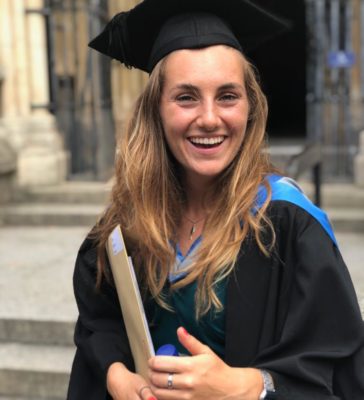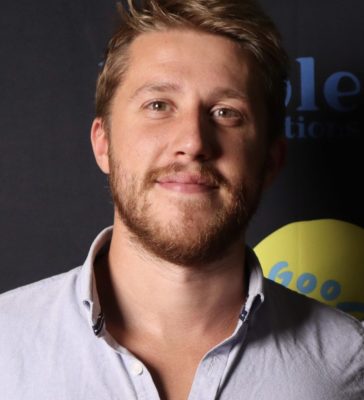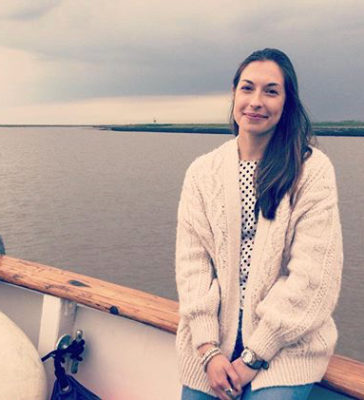
Camille Burton
Current Employer/Organisation Name
Safetynet Technologies
What have you been doing since leaving Exeter, and what are you doing now?
Since graduation I have been interning with various research groups. For my first internship I spent one month on the CEFAS research vessel Endeavour as a marine predator surveyor for MARINElife, collecting data on marine mammal and seabird sightings. Next, I spent four months in Gran Canaria as a divemaster intern and Angelshark researcher, collecting biological and spatial data on the critically endangered Angelshark. Lastly, I interned with the bycatch reduction company, Safetynet Technlogies, as an assistant to the business analyst. Currently, I am employed by Safetynet Technologies as a scientific researcher.
Why did you choose this career? And what do you enjoy most about your work?
Overfishing and non-selective fishing methods pose some of the greatest threats to the marine environment. Therefore, I believe it is important to get experience working within the fishing industry to develop a greater understanding of how the fishing industry works and the technologies being developed to modernise the industry. What I enjoy the most is researching for upcoming projects and clients’ specific species of interest and advising the marketing team on how Safetynet’s products may be used to help their clients best. Recently I have worked with Cornwall IFCA, creating a study protocol for testing whether light can be used to reduce the catch of seabass, and advising the team on the visual abilities of seabass.
Please tell us if you were a member of any societies, groups or sports clubs?
I was a member and president/secretary for the Jazz Harbour Big Band for all three years. I was also a member of the cheerleading and orchestra society in first year, lacrosse society in 3rd year and wilddocsoc.
What did you enjoy most about your programme and what was the biggest highlight?
I enjoyed the ability to choose modules from other courses, with my favourite module being Antarctica “Science from a frozen continent” with Katy Sheen. The field trip to the Pyrenees in year 2 and Alaska in year 3 were both the highlights of my time with Exeter.
What did you enjoy most about studying here?
The intimacy of living in such a small town, I believe it is a unique experience that other, larger universities cannot offer. You certainly will never get lost on a night out!
Why did you choose to study at Exeter?
I choose Exeter based on its high rating in biology, the field trips, and the emphasis on conservation throughout the whole course.
What skills and experiences have been most useful for your career?
Working within a business. Many graduate conservation students might aim to find internships with conservation groups or work as field scientists in exotic places. I believe getting experience within a business/commerce is important for understanding how the vast majority of people live and therefore who we as scientists need to target, in order for conservation to be successful on a larger scale.
What advice would you give to a current student who wishes to pursue your career?
Apply for jobs that may seem to demand a lower level of education and work your way up. Always email before applying for jobs, asking for more information and showing your interest. Do not be afraid to learn on the job. I had no idea how to identify British seabirds before setting sail with CEFAS, but I quickly learnt!
What are your plans for the future?
Complete my masters in Marine Environmental Management. I hope my further education will help me gain a job with CEFAS. However, I am still quite unsure and open to try many avenues of work!

